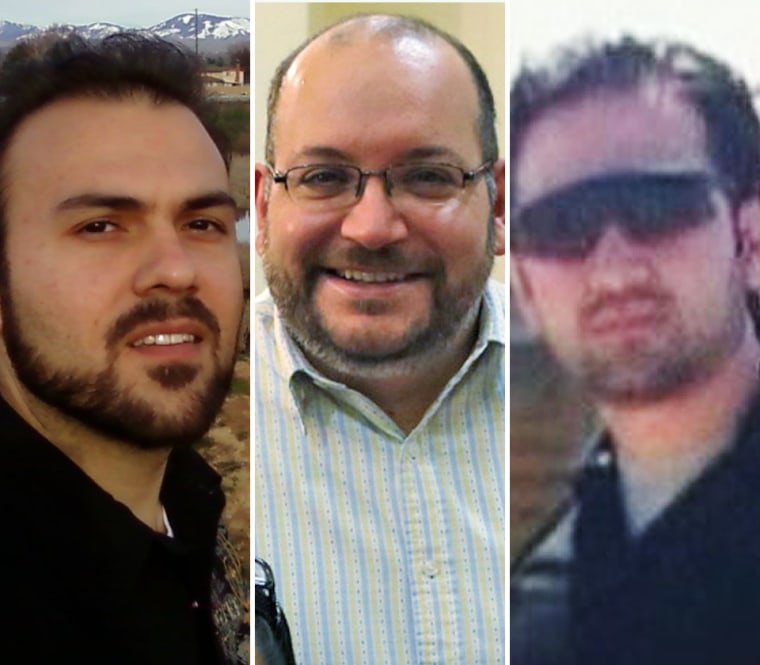The Obama administration acknowledged Thursday that a $400 million cash payment to Iran in January was used as leverage to ensure the release of four U.S. prisoners.
The payment, part of a $1.7 billion settlement of a decades-long legal dispute before an international tribunal in The Hague, was announced on Jan. 17, a day after Tehran freed the four Americans and on the same weekend that U.N. sanctions against Iran were lifted.
The White House and the State Department have strenuously denied Republican accusations that the transaction amounted to paying ransom, insisting that the timing was coincidental.
But State Department spokesman John Kirby acknowledged at a news briefing Thursday that Washington did use the payment as negotiating leverage to ensure that the four Americans were freed as promised.
"If you are asking me was some connection there at the end game, I am not going to deny that," Kirby said under extended questioning after The Wall Street Journal had reported that the payment was specifically timed to the Americans' release.
Pressed to state definitively whether "you wouldn't give them the $400 million in cash until the prisoners were released," Kirby replied: "That is correct."
On Aug. 3, Kirby tweeted that "reports of link between prisoner release & payment to Iran are completely false."
The United States has taken pains to make a distinction between its agreement to repay the money to Iran and the actual timing of the cash shipment, and Kirby indicated Thursday that using the money as a bargaining chip was a separate matter.
"What I am saying is that because we had concerns that Iran may renege on the prisoner release ... we, of course, naturally — and should be held to task if we didn't — sought to maintain maximum leverage until after the Americans were released," Kirby said Thursday.
Saying the return of the prisoners was the administration's top priority, Kirby said: "We wanted to keep as much leverage as possible. We believed that holding up that delivery was prudent, and we have [the] released Americans now.

"At least we got those people home, and there are no apologies for that whatsoever," he said.
Reaction from Republicans was swift.
"It is U.S. policy not to pay ransom, but President Obama just admitted he did," David Perdue of Georgia, chairman of the Senate Foreign Relations subcommittee overseeing the State Department, said in a statement.
"Paying $400 million in hard cash only incentivizes Iran to take more hostages," Perdue said. "I am outraged that we cannot rely on our own President to tell us the truth. This is another example in a long line of efforts by the Obama Administration to mislead the American people. What else are they hiding?"
Sen. Ben Sasse, R-Neb., said in a statement: "If it quacks like a duck, it's a duck. If a cash payment is contingent on a hostage release, it's a ransom. The truth matters and the president owes the American people an explanation."
And the Republican National Committee posted a graphic calling the acknowledgment "the definition of 'ransom.'"
A senior administration official later told NBC News: "We were able to conclude multiple strands of diplomacy within a 24-hour period, including implementation of the nuclear deal, the prisoner talks and the settlement of an outstanding Hague Tribunal claim, which saved American taxpayers potentially billions of dollars."
Kirby appeared on "Morning Joe" Friday morning, where he continued to defend the payment's timing, which he described as part of a deal arranged through The Hague.
"First of all, this was Iran's money," Kirby said. "It was money that they were going to get back anyway, and so we negotiated with The Hague this interest payment that was advantageous to American tax payers. So to the degree it was a quid pro quo, it was they got their principal back and we got a much more advantageous interest payment scheduled."

